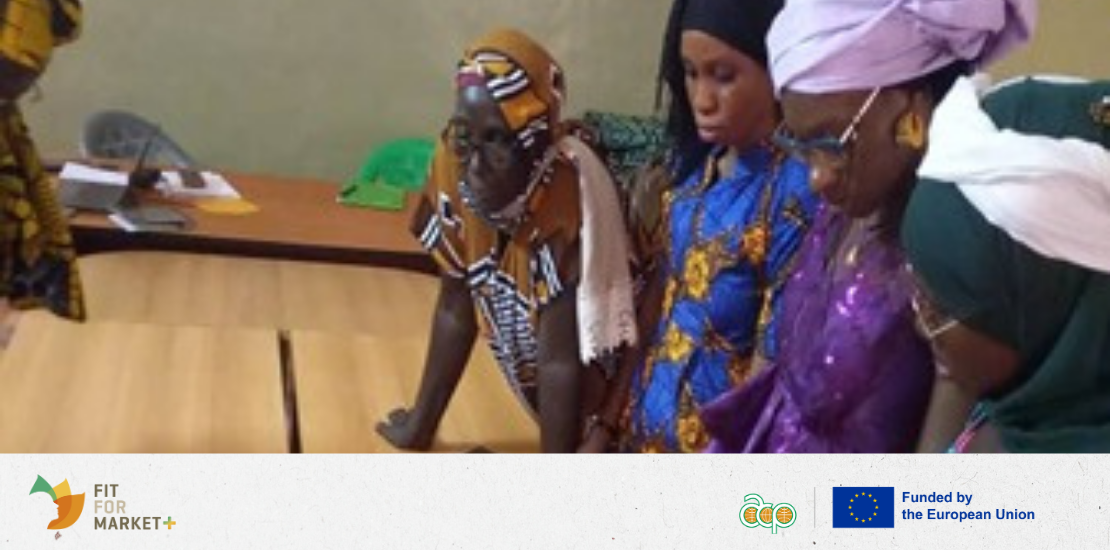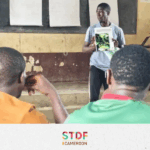- 03/11/2025
- Posted by: Sandra Borma
- Category: News

Processing units play a central role in creating added value, ensuring product quality, and enhancing the competitiveness of horticultural value chains. Moreover, strengthening the technical and organisational capacities of small enterprises and cooperatives is a key condition for scaling up the regional agri-food sector and recognising the economic role of women within value chains.
In Casamance, training sessions organised through the Fit For Market Plus (FFM+) programme have brought together production and processing managers with a clear objective: to improve management and workflow efficiency within processing units. The training programme was structured around four main stages:
- Enterprise diagnosis – identifying challenges and mapping production processes;
- Classroom training – providing theoretical insights into optimisation principles and tools;
- On-site implementation, supported by a local expert;
- Collective debriefing and experience sharing.
Concrete results and a lasting learning dynamic
Participants were able to identify key performance factors, strengthen internal coordination, and develop individual action plans to improve the management of their units.
Beyond the skills acquired, the initiative fostered a collective dynamic of continuous improvement, engaging teams around shared objectives of quality, efficiency, and sustainability.
Contributing to regional competitiveness and women’s empowerment
By supporting the professionalisation of local processing structures, COLEAD aims to contribute to the consolidation of regional agri-food value chains, the creation of sustainable employment, and the promotion of women’s entrepreneurship in local, regional, and international markets.
This experience illustrates how the FFM+ programme provides concrete support for capacity building among operators and the structuring of agri-food ecosystems within a framework of sustainability, inclusion, and gender equality.
This activity is supported by the Fit For Market Plus (FFM+) programme, implemented by COLEAD within the Framework of Development Cooperation between the Organisation of African, Caribbean and Pacific States (OACPS) and the European Union. This publication receives financial support from the European Union and the OACPS. The content of this publication is the sole responsibility of COLEAD and can in no way be taken to reflect the views of the European Union or the OACPS.





